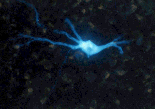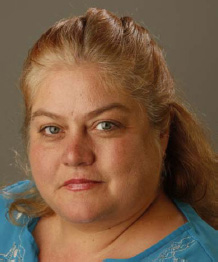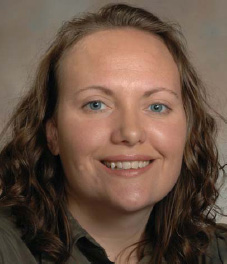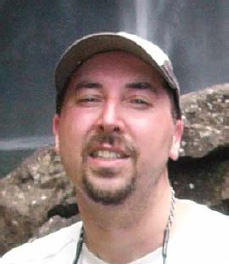
 |
| |
2007 Addiction Studies Program for Journalists Award
|
|
2005 Award
2003 Award
|
Bridget M. Kuehn |
|
Mary Meehan |
|
|
 |
JAMA Senior Staff Writer and Lexington Herald-Leader Reporter
Win 2007 Addiction Studies Awards
|
| |
Dec. 6, 2007 AMELIA ISLAND, FL. – A
senior staff writer with the Journal of the
American Medical Association and a
reporter for the Lexington Herald-Leader
in Lexington, Kentucky, have won the
Addiction Studies Program 2007
Journalists Award.
The judges gave Bridget M. Kuehn, senior
staff writer at JAMA Medical News, the
award for reporting in scientific and
medical journals “for her body of highly
detailed reporting on issues of importance
to health-care professionals.”
For reporting in mass media, the judges
selected Mary Meehan of the Lexington
Herald-Leader “for her series ‘A New
Dawn’ which followed a young mother’s
struggle with addiction against a
background of personal adversity.”
Some 250 print, broadcast, and electronic
journalists have attended one of the twoday
workshops offered during the past
eight years by the Addiction Studies
Program. The program is cosponsored by
|
|
Wake Forest University School of Medicine in
Winston-Salem, N.C.; National Families in
Action in Atlanta, GA., and the Treatment
Research Institute in Philadelphia, PA. and is
funded by a grant from the National
Institute on Drug Abuse, one of the National
Institutes of Health.
The purpose of the Addiction Studies
Program for Journalists is to help journalists
attain the highest standards of scientific
accuracy in reporting about drug addiction.
The workshops are designed to give
reporters a strong grasp of the neurobiology
of drug addiction, including the latest
scientific information, all presented in an
interesting lay-language format.
The awards competition is open to
journalists who have completed an Addiction
Studies Program workshop. The 2007 Award
was announced at the opening session of
the annual meeting of the Substance Abuse
Policy Research Program of the Robert
Wood Johnson Foundation, which provided
funding for the award this year. A fourth
|
|
|
Bridget Kuehnís Articles
Briefs
• Alcoholism Subtypes
• Alcohol Treatment Guide
• Methadone Deaths Rise
Articles
• Scientists Probe Ways to Curb Opioid
Abuse Without Hindering Pain Treatment
• Brain Scans, Genes Provide Addiction
Clues
• Brain Scan Clues Correction
• Centers to Weave Addiction Treatment
into Medical Education
• Scientists Seek Cause of Drug Craving
• Nicotine, Donepezil May Dampen Meth
Craving
• Role of Environment in Addiction Probed
• Genome Provides Clues on Addiction
• Prescription Drug Abuse Rises Globally
• Mental Health Courts Show Promise
• Methadone Treatment Marks 40 Years
• Could a Novel Vaccine Help Smokers
Quit?
• Office-Based Treatment for Opioid
Addiction Achieving Goals
• Opioid Prescriptions Soar: Increase in
Legitimate Use as Well as Abuse
• Protective Factors May Prevent
Alcoholism
• Report Reviews Secondhand Smoke
Risks: Some Scientists Question Risk
Level
• Many Teens Abusing Medications
• Shift Seen in Patterns of Drug Use
among Teens
• Treatment Key to Reducing Cost of
Crime
• Mental Illness Takes Heavy Toll on
Youth
• Despite Benefit, Physicians Slow to Offer
Brief Advice on Harmful Alcohol Use
• Personalized Care May Help Smokers
Quit
• New Therapies for Alcohol Dependence
Open Options for Office-Based
Treatment
|
|
Mary Meehanís Series
Articles
Chapter 1
• A New Dawn? A Kentucky mother’s
struggle through drug court
• To avoid prison, she must get clean
• The ‘carrot’ is help; the ‘stick’ is jail
• A limited few get the limited resources
Chapter 2
• In God she trusts – for now
• This is your brain on drugs: haywire
Chapter 3
• ‘Go ahead and kill me’
• ‘You can’t teach them hope’
• About Dawn’s Story
Chapter 4
• A fragile hold
• Testing is vital to drug court
• There’s a lot at stake in drug tests, and
they’re not perfect
Chapter 5
• Nowhere else to go
Chapter 6
• When all is lost
• When should drug users lose their kids?
• With drug court’s help, some people do
get their lives back
• Prescription tracker could raise red flag
Sidebars
• Read Rachel Raines’ letter to the court on
behalf of her son, Larry
• Drug court program coordinator’s e-mail
on Dawn
• Harold Raines’ letter in support of her
brother, Larry
• Brenda Raines’ letter
• Dawn Smith’s written statement about
Larry Raines
• Larry Raines’ plea agreement, judgment
• Larry Raines’ sentence for drug, wanton
endangerment charges
• Dawn’s letter to her drug court
caseworker
• Dawn’s indictment
• Dawn’s story so far
• You can help
• Need help?
• Kentucky drug court directory
• Four years in the making
|
|
|
2005 Addiction Studies Program for Journalists Award
|
|
Mike Stobbe |
|
Michelle L. Start |
Two Journalists Win 2005 Addiction Studies Program Competition
|
| |
WINSTON-SALEM, N.C. - Mike Stobbe of
The Charlotte Observer and Michelle L.
Start of The Daily Commercial (Leesburg,
Fla.) are the 2005 winners of the Addiction
Studies Program for Journalists Award
Competition.
The biannual competition is for journalists
who have attended a workshop of the
Addiction Studies Program for Journalists.
Contest entries must be articles or series
addressing or related to issues of drug
abuse or addiction.
Stobbe won first place for his contribution
to a three-part series called "The Ritalin
Gap," which explored issues surrounding
the increasing use of drugs for attention
deficit hyperactivity disorder. Stobbe
attended the workshop in Park City, Utah,
in December 2003. He said of his series,
"One topic we wanted to explore was the
chemical similarity between ADHD
stimulants and cocaine. I very much
needed an education about the different
drugs, and I also wanted to talk to experts
about their perspectives on ADHD
medications in general."
|
|
At the Addiction Studies workshop, Stobbe
said, "I got exactly what I needed."
Start used insights gained at the June 2004
workshop in Puerto Rico to delve into the
lives of four drug addicts in her community.
She won second place for her entry, "Inside
the High," an 11-story package that told
about their failures and successes in
poignant detail.
"I wanted to paint a picture of the impact of
addiction on society, but also of the struggle
addicts go through to get clean," Start said.
She was appreciative of the opportunity to
attend the workshop. "Without it, I would
have never delved into this story and 'Inside
the High' would have never been born."
The awards were made possible when the
program’s leaders won the 2003 Media
Award of the College on Problems of Drug
Dependence (CPDD), the largest and oldest
nonprofit organization for the scientific study
of drug dependence and addiction. The
program decided to use the CPDD award to
fund the journalist awards for two years. A
third competition will take place in 2007.
|
|
|
|
2003 Addiction Studies Program for Journalists Award
|
|
Brian Vastag |
|
Melissa Long |
|
|
 |
JAMA Editor and WROC-TV Anchor Win 2003 Addiction Studies Awards
|
| |
Feb. 18, 2004 WINSTON-SALEM, N.C. – A
medical news editor with the Journal of
the American Medical Association and a
television news anchor/reporter from
Rochester, N.Y., have won the first two
journalist awards of the Addiction Studies
Program for Journalists.
Brian Vastag, a news associate editor of
JAMA, won first prize for two articles
published last year: “Addiction Poorly
Understood by Professionals” and “In-
Office Opiate Treatment ‘Not A Panacea.’”
Melissa Long, an anchor and reporter for
WROC-TV, won second prize for “Strung
Out: Kids at a Crossroad,” an hour-long
documentary, as well as a series of fiveminute
stories looking at drug abuse from
many of its complex sides.
More than 100 print and broadcast
journalists have attended one of the twoday
workshops offered during the past five
years by the Addiction Studies Program.
The program is cosponsored by Wake
Forest University School of Medicine and
|
|
National Families in Action and is funded by
a grant from the National Institute on Drug
Abuse.
The purpose of the Addiction Studies
Program for Journalists is to help journalists
attain the highest standards of scientific
accuracy in reporting about drug addiction.
The workshops are designed to give
reporters a strong grasp of the neurobiology
of drug addiction, including the latest
scientific information, all presented in an
interesting lay-language format.
The awards competition is open to
journalists who have completed an Addiction
Studies Program workshop. The awards
were made possible when the program’s
leaders won the 2003 Media Award of the
College on Problems of Drug Dependence
(CPDD), the largest and oldest nonprofit
organization for the scientific study of drug
dependence and addiction. The program
decided to use the CPDD award to fund the
journalist awards for two years. A second
competition will take place in 2005.
|
|





